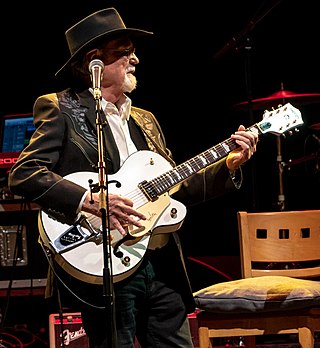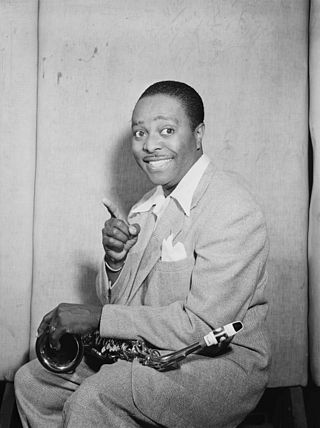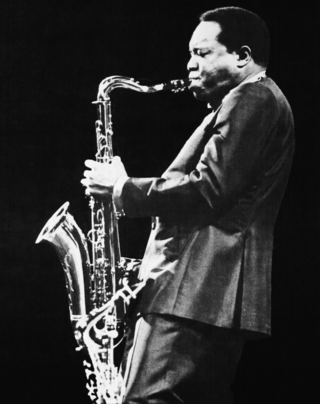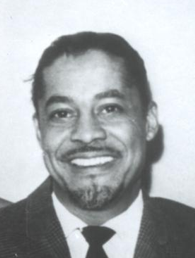Instrumental rock is rock music that emphasizes instrumental performance and features very little or no singing. Examples of instrumental music in rock can be found in practically every subgenre of the style. Instrumental rock was most popular from the mid-1950s to mid-1960s, with artists such as Bill Doggett Combo, The Fireballs, The Shadows, The Ventures, Johnny and the Hurricanes and The Spotnicks. Surf music had many instrumental songs. Many instrumental hits had roots from the R&B genre. The Allman Brothers Band feature several instrumentals. Jeff Beck also recorded two instrumental albums in the 1970s. Progressive rock and art rock performers of the late 1960s and early 1970s did many virtuosic instrumental performances.

Duane Eddy is an American rock and roll guitarist. In the late 1950s and early 1960s, he had a string of hit records produced by Lee Hazlewood, which were noted for their characteristically "twangy" sound, including "Rebel-'Rouser", "Peter Gunn", and "Because They're Young". He had sold 12 million records by 1963.

Louis Thomas Jordan was an American saxophonist, multi-instrumentalist, songwriter and bandleader who was popular from the late 1930s to the early 1950s. Known as "the King of the Jukebox", he earned his highest profile towards the end of the swing era. He was inducted into the Rock and Roll Hall of Fame as an "early influence" in 1987.

Curtis Ousley, known professionally as King Curtis, was an American saxophonist who played rhythm and blues, jazz, and rock and roll. A bandleader, band member, and session musician, he was also a musical director and record producer. A master of the instrument, he played tenor, alto, and soprano saxophone. He played riffs and solos on hit singles such as "Respect" by Aretha Franklin (1967), and "Yakety Yak" by The Coasters (1958) and his own "Soul Twist" (1962), "Soul Serenade" (1964), and "Memphis Soul Stew" (1967).
Little Johnny Taylor was an American blues and soul singer. He made recordings throughout the 1960s and 1970s, and continued public performances through the 1980s and 1990s.

"Good Rocking Tonight" is a jump blues song originally released in 1947 by its writer, Roy Brown and was covered by many recording artists. The song includes the memorable refrain, "Well I heard the news, there's good rocking tonight!" The song anticipated elements of rock and roll music.

"Baby, Please Don't Go" is a traditional blues song that was popularized by Delta blues musician Big Joe Williams in 1935. Many cover versions followed, leading to its description as "one of the most played, arranged, and rearranged pieces in blues history" by French music historian Gérard Herzhaft.

Ernest Aaron Freeman was an American pianist, organist, bandleader, and arranger. He was responsible for arranging many successful rhythm and blues and pop records from the 1950s to the 1970s.

"Call It Stormy Monday (But Tuesday Is Just as Bad)" (commonly referred to as "Stormy Monday") is a song written and recorded by American blues electric guitar pioneer T-Bone Walker. It is a slow twelve-bar blues performed in the West Coast blues-style that features Walker's smooth, plaintive vocal and distinctive guitar work. As well as becoming a record chart hit in 1948, it inspired B.B. King and others to take up the electric guitar. "Stormy Monday" became Walker's best-known and most-recorded song.

"The Things That I Used to Do" is a blues standard written by Guitar Slim. He recorded it in New Orleans, where the young Ray Charles arranged and produced the session. Specialty Records released the song as a single in 1953 and it became a bestseller the following year. Specialty founder Art Rupe believed that the appeal would be limited to the Southern U.S. rural audience. However, urban rhythm and blues radio stations in the North began airing the song and built it into a national hit. As a result, Guitar Slim became in great demand as a performer and played at venues such as the Apollo Theater in New York City.

"Raunchy" is an instrumental by American rock and roll artist Bill Justis, co-written with Sidney Manker and produced by Sam Phillips. The tune, from the album Cloud 9, was released as a single on the record label Phillips International Records, a sub-label of Sun Records, on September 23, 1957.
"One Way Out" is a blues song that was recorded in the early 1960s by both Sonny Boy Williamson II and Elmore James. A reworking of the song by G. L. Crockett, titled "It's a Man Down Here", appeared on the Billboard record charts in 1965. In 1971, the Allman Brothers Band recorded an updated live version of the song, which was included on their popular Eat a Peach album (1972).

"Black Angel Blues", also known as "Sweet Black Angel" or "Sweet Little Angel", is a blues standard that has been recorded by numerous blues and other artists. The song was first recorded in 1930 by Lucille Bogan, one of the classic female blues singers. Bogan recorded it as a mid-tempo, twelve-bar blues, featuring her vocal with piano accompaniment.
"Last Date" is a 1960 instrumental written and performed by Floyd Cramer. It exemplifies the "slip note" style of piano playing that Cramer made popular. It peaked at number 11 on the country chart and at number two on the Hot 100 behind "Are You Lonesome Tonight?" by Elvis Presley. Cramer's recording inspired a number of successful cover versions, including a vocal adaptation by Conway Twitty.

Have 'Twangy' Guitar Will Travel is the debut album by the guitarist Duane Eddy. It was released in 1958 on Jamie Records, as JLP-3000. There were five charting singles and a B-side of an additional charting single taken from this album.
"Forty Miles of Bad Road" is a rock and roll instrumental recorded by Duane Eddy. Released as a single in 1959, it also appeared on Eddy's 1960 album $1,000,000 Worth of Twang.
"Rebel-'Rouser" is a rock and roll instrumental song written by Duane Eddy and Lee Hazlewood and originally released on Jamie Records in 1958 by "Duane Eddy and his 'twangy' guitar" as a single with "Stalkin'" on its B-side. Both tracks were produced by Lester Sill and Lee Hazlewood.
"Because They're Young" is an instrumental performed by Duane Eddy. It appeared on his 1960 album, $1,000,000 Worth of Twang.
"Ramrod" is a song written by Al Casey and originally released as the A-side of a single released by the obscure Ford record label in Los Angeles in 1957, backed on its B-side by the Duke Ellington/Juan Tizol/Irving Mills song "Caravan". Al Casey actually plays lead guitar on both sides of this release, but the record was credited to "Duane Eddy and the Rock-A-Billies". The original recording of "Ramrod" was overdubbed on July 28, 1958 with Plas Johnson's saxophone and "rebel yells" were also added by the Sharps for the song's second release on Jamie Records in August 1958, now with the song "The Walker" on its B-side and this release reached #17 on the R&B chart and #27 on the Billboard Hot 100 in 1958. The song later also appeared on Duane Eddy's 1958 album, Have 'Twangy' Guitar Will Travel.
Donnie Owens was an American singer, guitarist, producer, and composer. His hit song “Need You” peaked at #25 on the Billboard Hot 100 chart in 1958. Owens worked extensively with artist/songwriter/producer Lee Hazlewood and worked as an executive producer for LHI Records. He was a session musician and played the rhythm guitar for Duane Eddy, Nancy Sinatra, Elvis Presley and many others. In 1994, Owens was accidentally shot to death by his girlfriend.










